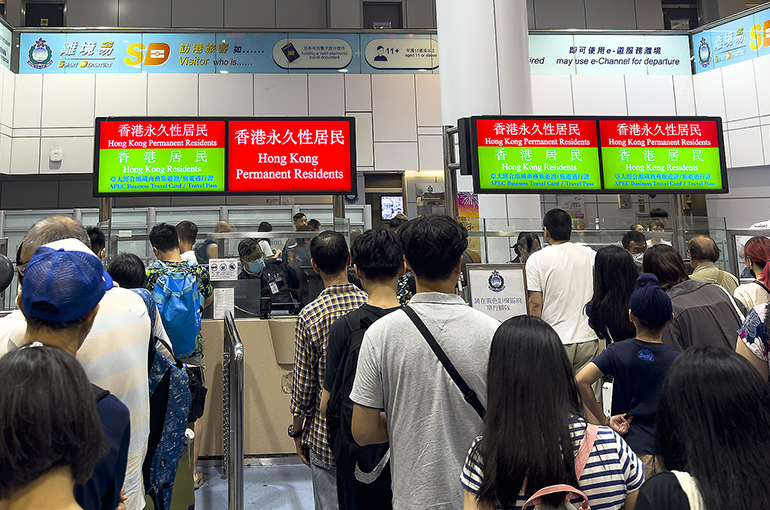 Cross-Border Borrowing Issues Come Into Focus as Hong Kongers Flock to Greater Bay Area
Cross-Border Borrowing Issues Come Into Focus as Hong Kongers Flock to Greater Bay Area(Yicai) Nov. 19 -- As more Hong Kong residents decide to live long-term in the Chinese mainland’s Greater Bay Area, the demand for cross-border borrowing, social security purchases, and other financial services is increasing. Industry insiders warn that data transfers, compliance risks, and institutional misalignment remain major obstacles.
The demand for mainland loans among Hong Kongers is growing, Xian Diyun, chief Asia-Pacific product officer at TransUnion Credit Report Hong Kong, said at the 2025 Hong Kong Fintech Week. Large numbers cross the border each week for shopping and many are also starting businesses and buying homes in the Greater Bay Area, creating a need for borrowing in the mainland, he said.
These individuals often have strong credit histories in Hong Kong but lack a credit footprint in the mainland, a gap that banks are keen to fill, according to Xian.
The credit data systems that mainland banks rely on are not fully integrated with Hong Kong’s, according to Chen Yingyi, deputy director of the Institute of Regional Development and Planning at the China Development Institute Shenzhen. Differences in data management, storage permissions, and regulation are real barriers to credit flow, Chen said.
If a Hong Kong resident defaults on a mainland loan, debt recovery and legal enforcement procedures become complex and costly across different jurisdictions, said Prof. Lin Jiang of Lingnan College, Sun Yat-sen University. He pointed out that Hong Kong’s role as a global financial center and its diverse capital flows add further anti-money-laundering challenges.
Lin called for the faster creation of a cross-border credit cooperation system under the Greater Bay Area framework, with the People’s Bank of China’s credit reporting center and Hong Kong regulators working together to build a shared system that recognizes and translates credit histories.
“Even though the demand is still modest, mainland banks are keen to advance this matter, hoping to build a mature cross-border credit verification platform,” Xian pointed out. “This platform could be extended in the future to people coming to China to work or study from places like Singapore and Malaysia.”
Lending rate differentials between the special administrative region and the mainland are not a major contributing factor. At the end of last month, Bank of China Hong Kong and HSBC’s mortgage rate ceilings were between 3.25 percent and 3.5 percent, while first-class mainland clients were being offered loans at around 3 percent.
Most mainland borrowing needs among Hong Kongers is actually concentrated on consumption, Xian noted. If a Hong Kong resident can secure a mainland credit card, it will greatly ease everyday spending and payments.
Buying social security in the mainland has also become a new trend among Hong Kong residents. Mr. Li, a Hong Kong resident in his 50s, calculates that by making a monthly pension contribution of CNY898 (USD126), he can retire in Shenzhen in 20 years with a payout of over CNY3,000 (USD422) a month. “I can break even in four years,” he noted.
As of August last year, roughly 332,800 Hong Kong and Macau residents had signed up for pension, work injury, and unemployment insurance in Guangdong, a nearly 119 percent jump from the end of 2021, according to figures from the Guangdong Provincial Social Security Fund Administration.
Editor: Futura Costaglione